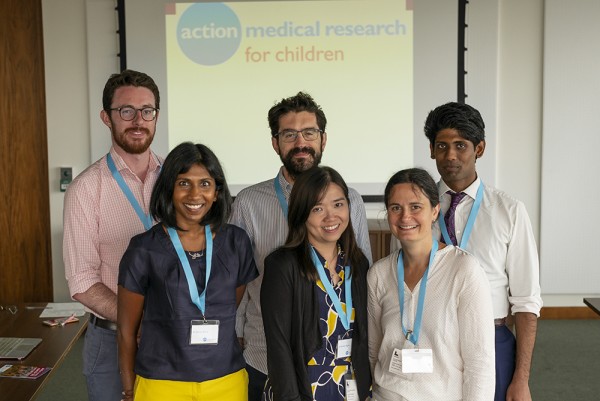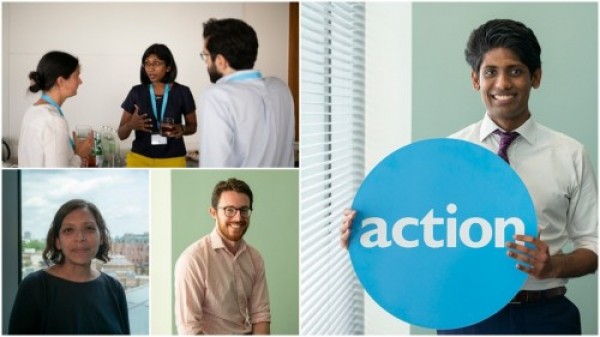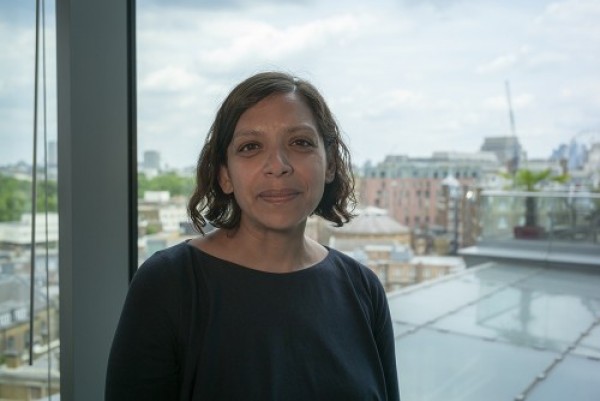Archived
Please note, this page may contain outdated information or subject matter.
Action’s Research Training Fellowship scheme helps promising, early career medical doctors, bioengineers and allied health professionals study their chosen field in depth, often supporting a PhD. The prestigious award, now in its 45th year, also helps them develop a range of vital research skills.

When six new and current Research Training Fellows came together to share their projects and experiences so far at our annual fellowship day, kindly hosted by Ruffer LLP, several common themes emerged. Scientific research is, as former Action RTF Professor Manju Kurian noted, ‘a process of discovery’. This means that failure is part of the path – and resilience is vital.
“Resilience is vital”
Setbacks can be devastating: Dr Shivani Bailey, whose specialist field is childhood cancer, recounted investing time on an experiment only to discover that the results could not be replicated, and having to take a fresh approach. Building the resilience to handle setbacks, whether in experiments, problems with materials or equipment, is key to thriving as a researcher.

“Collaborating is key”
Dr Apostolos Papandreou, who is studying the rare neurological disease BPAN, commented that if one line of inquiry is not working, it’s important to prioritise, know when to stop and try something else – with guidance from mentors, whose role is crucial.
Dr Emilie Sauvage, whose research centres on developing a ‘patch’ for heart repair surgery in babies with congenital heart disease, noted that collaboration is key. With many projects, like Emilie’s, involving a multi-disciplinary approach, asking for help and building relationships across different specialist disciplines, institutions and countries is highly beneficial.
“Focus and flexibility”
Staying focused throughout a PhD, which typically takes three years to complete, is challenging but essential. Dr Adeline Ngoh, who is coming towards the end of her research into rare disease Landau Kleffner syndrome, reflected that it’s important to take time away from clinical work for the final writing-up phase.

While focus is vital so, too, is being adaptable and keeping an open mind about the future. Describing her own career, Professor Kurian stressed that changing direction or institution can be enriching. A career in research may turn out to be far from linear and rather that fighting this, it’s best to ‘accept and embrace the wiggly line’.
“A vision to help children – and the skills to make it happen”
Dr James Ashton, who is studying Crohn’s disease in children, commented on the bigger picture – understanding where your research sits within broader themes such as personalised or ‘precision’ medicine.
And Dr Nandaki Keshavan, who is just beginning his Action funded research into mitochondrial disease, shared similar thoughts since his study centres on gene therapy as a route to helping children and offering much-needed hope to families.
Action is honoured to play a role in supporting these talented early career researchers as they develop the resilience, tenacity, focus, adaptability and collaborative skills to build a career in medical research – and one day save and change children’s lives.
We’d like to thank Professor David Edwards and Professor Nigel Klein for listening, supporting and offering advice to our RTFs on the fellowship day.
More about Manju…
A Research Training Fellowship from Action allowed Professor Manju Kurian (pictured below) to complete her PhD in 2010. She now supervises researchers alongside her clinical work at GOSH and is an academic paediatric neurologist at the UCL Great Ormond Street Institute of Child Health. She continues her research into genetic causes of neurological diseases in children. In 2017 Professor Kurian won the Sir Jules Thorn Award for Biomedical Research, supporting research into genetic movement disorders that mimic cerebral palsy. She was recently awarded an NIHR research professorship

Find out more about the Action RTF scheme
